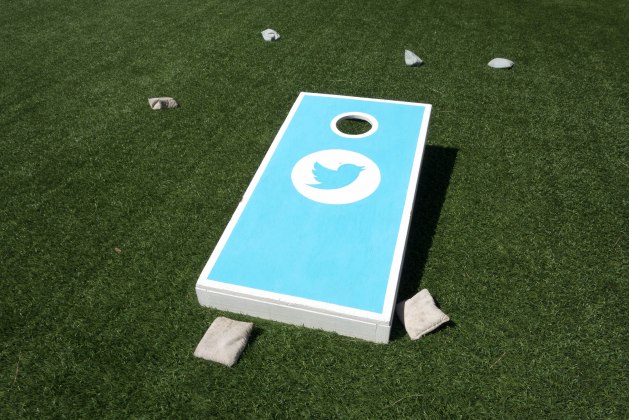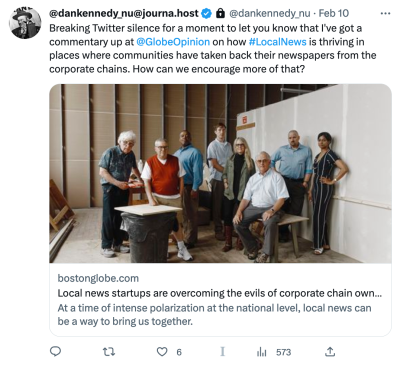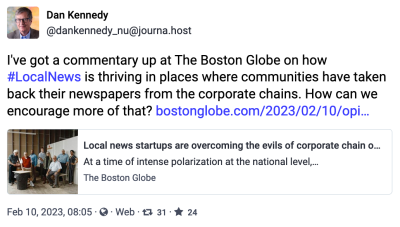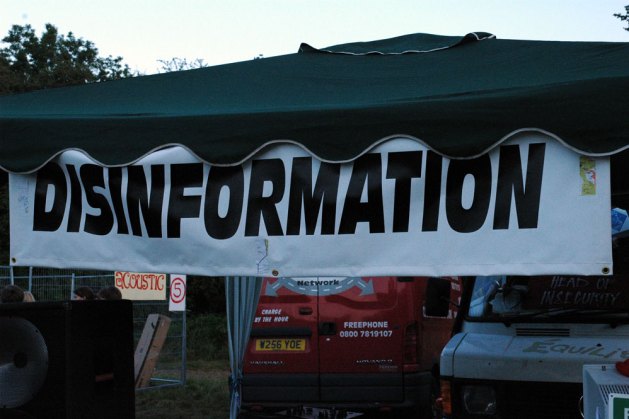
Photo (cc) 2013 by Scott Beale / Laughing Squid
When we learned last spring that Elon Musk might buy Twitter and transform it into some sort of troll- and bot-infested right-wing hellhole, my first thought was: Bring it on. Although I’m a heavy user, I had no great affection for the service, which was already something of a mess. If Musk ran it into a ditch, well, what of it?
On second thought, I realized I would miss it — and so would a lot of other people. In particular, Twitter has become an important service in calling out injustice around the world as well as a forum that gives Black users a voice they might not have anywhere else. My friend Callie Crossley was talking about Black Twitter on the late, lamented “Beat the Press with Emily Rooney” ages ago. Black Twitter could go elsewhere, of course, but it would be hard to recreate on the same scale that it exists now.
Please support this free source of news and commentary for just $5 a month by becoming a member of Media Nation. Just click here.
For now, I’m staying, but I’m also playing around. Mastodon meets a lot of my needs (I’m @dankennedy_nu@journa.host), mainly because a lot of media and political people I want to follow immediately made the move. But, so far, I see none of the non-Trump conservatives whose presence I value and very few Black users. That may be my fault, and it may change. I’m also skeptical of Mastodon’s extreme decentralization, with each server (called an instance) having its own rules of engagement. I’m also on Post News at @dankennedy_nu, but I really don’t like the micropayment scheme on which it’s staked its future, explained at Nieman Lab by Laura Hazard Owen.
Twitter really does matter. It may be the smallest of the social platforms, but it’s a place where people in media and politics have to be. I’m not sure it can be replicated. So much has been written and said about Twitter over the past few weeks, and no one could possible keep up with it all. Here, though, are three pieces that I think cut through the murk as well as any.
The first is from Dr. Meredith Clark, my colleague at Northeastern’s School of Journalism. Professor Clark is a leading authority on Black Twitter and the author of the forthcoming book “We Tried to Tell Y’all: Black Twitter and the Rise of Digital Counternarratives.” Meredith says she’s staying. In a recent interview with Michel Martin of NPR, she explained why:
We’re digging in our heels. We’ve been on this platform. We’ve contributed so much to it that we’ve made it valuable in the way that it is today. We’ve made it an asset, and so no, we’re not going anywhere. And then I see other people, honestly, who have more privilege, a number of academics who are saying, nope, we’re going somewhere else. We’re leaving for other platforms.
But I do really think that there are limits to those relationships because there aren’t many platforms that allow many speakers to talk to one another all at the same time in the same place. My use hasn’t changed all that much. I don’t plan to be one of those people who migrate. I just tweeted the other day that I’ll be the last one to turn the lights off if that’s what I need to be, because I’m certainly not going either.
By the way, Meredith was a guest earlier this year on “What Works: The Future of Local News,” a podcast hosted by Ellen Clegg and me. You can listen to our conversation here.
Taking the opposite approach is Jelani Cobb, dean of the Columbia Journalism School, who has suspended his Twitter account in favor of Mastodon — a step that he admits has cut him out of numerous conversations, but that he believed was necessary in order not to be a part of Musk’s transformation of Twitter into a reflection of his own obsessions and ego. Like Clark, Dr. Cobb is Black; unlike Clark, his reasoning makes no mention of Black Twitter per se, although he does note its value in bringing to light racial injustices. “Were it not for social media,” Cobb writes in The New Yorker, “George Floyd — along with Ahmaud Arbery and Breonna Taylor — would likely have joined the long gallery of invisible dead Black people, citizens whose bureaucratized deaths were hidden and ignored.” But that, he emphasizes, was then:
Participating in Twitter — with its world-spanning reach, its potential to radically democratize our discourse along with its virtue mobs and trolls — always required a cost-benefit analysis. That analysis began to change, at least for me, immediately after Musk took over. His reinstatement of Donald Trump’s account made remaining completely untenable. Following an absurd Twitter poll about whether Trump should be allowed to return, Musk reinstated the former President. The implication was clear: if promoting the January 6, 2021, insurrection — which left at least seven people dead and more than a hundred police officers injured — doesn’t warrant suspension to Musk, then nothing else on the platform likely could.
My own view of Trump’s reinstatement is rather complicated. On the one hand, I don’t think it’s easy to justify banning a major presidential candidate, which Trump now surely is. On the other hand, he was banned for fomenting violence — and now that he’s been given another chance, he’s likely to do it again, which means he’ll have to be banned all over again. Except that he won’t be with Musk in charge. (So far, at least, Trump hasn’t tweeted since his reinstatement.) In any case, I respect Cobb’s decision, even if I’m still not quite there.
I’ll close with Josh Marshall, editor of the liberal website Talking Points Memo. Like me, Marshall is dipping his toe into Mastodon’s waters while maintaining his presence on Twitter. And, like me, he’s trying to figure out exactly what Musk is up to. The other day he offered a theory that doesn’t explain all of it, but may explain some of it — especially the part that plays into Musk’s emotions and sense of grievance, which may prove to be the most important in understanding what’s going on.
Marshall sees Musk as traveling a path previously taken by Donald Trump. Like Trump, Musk is a narcissist who can’t imagine a world that doesn’t revolve around his every need and want. Also like Trump in, say 2015, Musk was until recently someone with vague right-wing proclivities who has hardened his views and openly embraced white supremacy and antisemitism because we liberals hurt his feelings. Trump and Musk have both taken up with horrible people because they were offering support and friendship when no one else would. With Trump, it’s Nick Fuentes and Kanye West. With Musk, it’s, well, Trump and his sycophants. Marshall writes:
I doubt very much that in mid-2015 Trump had any real familiarity with the arcana of racist and radical right groups, their keywords or ideological touch-points. But they knew he was one of them, perhaps even more than he did. They pledged their undying devotion and his narcissism did the rest.
Elon Musk is on the same path. There are various theories purporting to explain Musk’s hard right turn: a childhood in apartheid South Africa, his connection with Peter Thiel, disappointments in his personal life. Whatever the truth of the matter, whatever right-leaning tendencies he may have had before a couple years ago appear to have been latent or unformed. Now the transformation is almost complete. He’s done with general “free speech” grievance and springing for alternative viewpoints. He’s routinely pushing all the far right storylines from woke groomers to Great Replacement.
If anything good can come of this it may be that we hit peak social media a few years ago. Facebook is shrinking, especially among anyone younger than 60. TikTok is huge, but as a number of observers have pointed out, it isn’t really a social platform — it’s a broadcaster with little in the way of user interaction. Now Twitter is splitting apart.
This may be temporary. Maybe Mark Zuckerberg or (most likely) someone else will be able to reassemble social media around the metaverse. For now, though, social media may be broken in a way we couldn’t have imagined in, say, 2020. Perhaps that’s not such a bad thing — although I wouldn’t mind if someone put Twitter back together again, only this time minus the trolls, the bots and the personal abuse that defined the site long before Musk came along.











